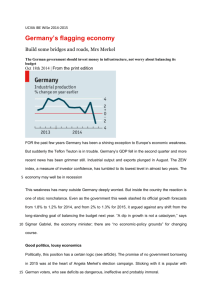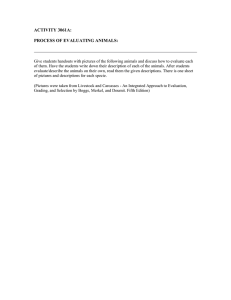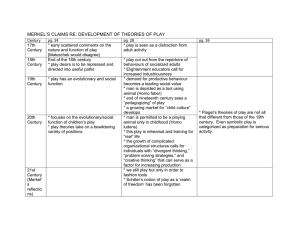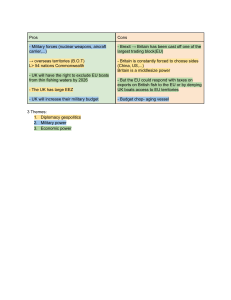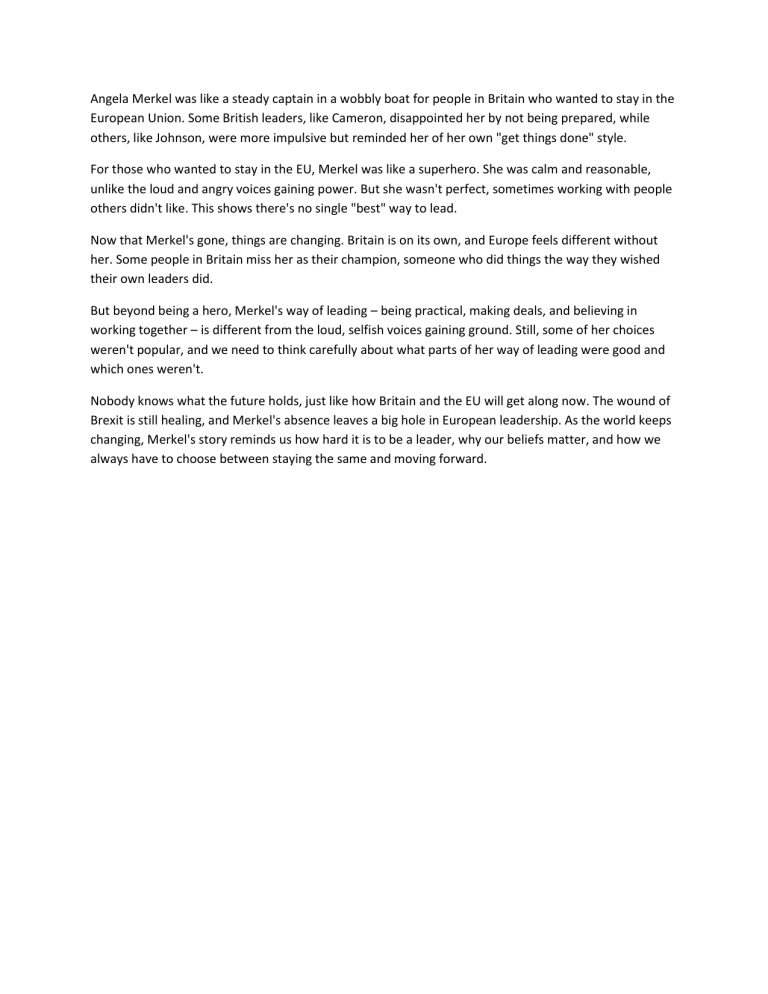
Angela Merkel was like a steady captain in a wobbly boat for people in Britain who wanted to stay in the European Union. Some British leaders, like Cameron, disappointed her by not being prepared, while others, like Johnson, were more impulsive but reminded her of her own "get things done" style. For those who wanted to stay in the EU, Merkel was like a superhero. She was calm and reasonable, unlike the loud and angry voices gaining power. But she wasn't perfect, sometimes working with people others didn't like. This shows there's no single "best" way to lead. Now that Merkel's gone, things are changing. Britain is on its own, and Europe feels different without her. Some people in Britain miss her as their champion, someone who did things the way they wished their own leaders did. But beyond being a hero, Merkel's way of leading – being practical, making deals, and believing in working together – is different from the loud, selfish voices gaining ground. Still, some of her choices weren't popular, and we need to think carefully about what parts of her way of leading were good and which ones weren't. Nobody knows what the future holds, just like how Britain and the EU will get along now. The wound of Brexit is still healing, and Merkel's absence leaves a big hole in European leadership. As the world keeps changing, Merkel's story reminds us how hard it is to be a leader, why our beliefs matter, and how we always have to choose between staying the same and moving forward.
